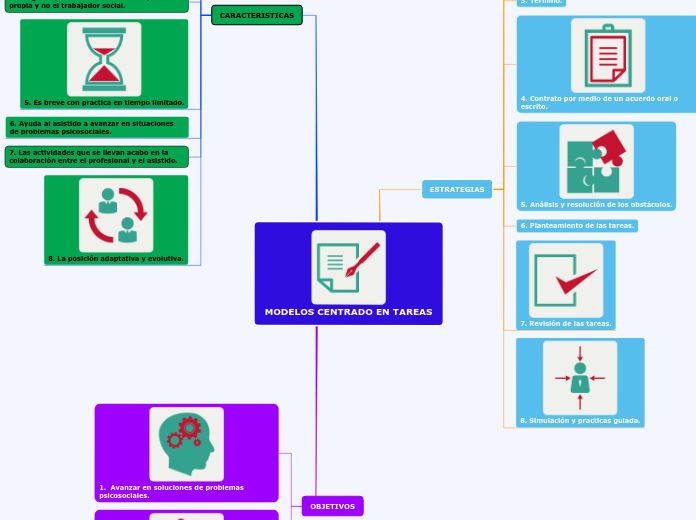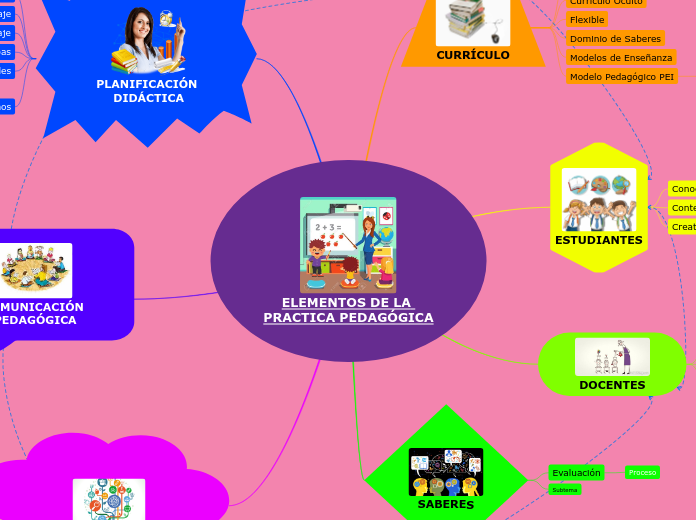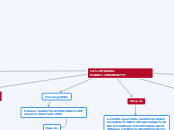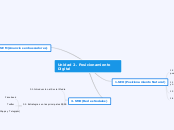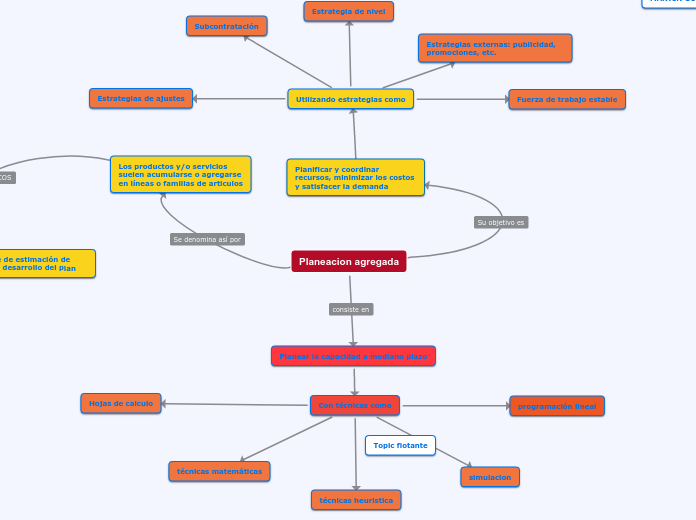MODELOS CENTRADO EN TAREAS
In linguistics, syntax is the set of rules, principles, and processes that govern the structure of sentences in a given language, usually including word order.
OBJETIVOS
2. Disminuir de la angustia que impulsa a solicitar ayuda.
The predicate of a sentence is the part that modifies the subject in some way. Because the subject is the person, place, or thing that a sentence is about, the predicate must contain a verb explaining what the subject does and can also include a modifier.
1. Avanzar en soluciones de problemas psicosociales.
The subject of a sentence is the person, place, thing, or idea that is doing or being something. You can find the subject of a sentence if you can find the verb.
Ask the question, 'Who or what 'verbs' or 'verbed'?' and the answer to that question is the subject.
CARACTERISTICAS
8. La posición adaptativa y evolutiva.
7. Las actividades que se llevan acabo en la colaboración entre el profesional y el asistido.
See the example below and try to create your own simple sentences.
Tim is driving the red car.
6. Ayuda al asistido a avanzar en situaciones de problemas psicosociales.
5. Es breve con practica en tiempo limitado.
4. El agente primario de cambio es la persona propia y no el trabajador social.
See the example below and try to create your own simple sentences.
Tim is driving the car with his mother.
3. Capacitar, para planear y ejecutar las acciones para solucionar problemas.
See the example below and try to create your own simple sentences.
Tim is the driver.
2. Se basa en psicología cognitiva.
See the example below and try to create your own simple sentences.
Tim drives the car.
1. Su rol es provocar cambios en el asistido.
See the example below and try to create your own simple sentences.
Tim drives.
ESTRATEGIAS
A complex sentence is a sentence that contains an independent clause and one or more dependent clauses.
An independent clause can stand alone as a sentence, but a dependent clause even though it has a subject and a verb cannot stand alone.
8. Simulación y practicas guiada.
7. Revisión de las tareas.
6. Planteamiento de las tareas.
Attributive clauses serve as an attribute to a noun (pronoun) in the main clause. This noun or pronoun is called the antecedent of the clause.
5. Análisis y resolución de los obstáculos.
An adverbial clause is a group of two or more words that function as an adverb in a sentence.
4. Contrato por medio de un acuerdo oral o escrito.
An appositive clause follows another noun or noun phrase in apposition to it; that is, it provides information that further identifies or defines it.
3. Termino.
The subject clause is a dependent clause that acts as a subject.
2. Especificación del problema.
A predicative clause may be introduced by conjunctions - that, whether, whether... or, as, as if, as though, because, lest, the way - or connectives.
The latter may be conjunctive pronouns - who, whoever, what, whatever, which - or conjunctive adverbs - where, wherever, when, whenever, how, why.
1. Establecimiento de incentivo.
The object clause is a phrase on which a verb performs an action. It falls at the end of a sentence, and is governed by a verb or a preposition.
